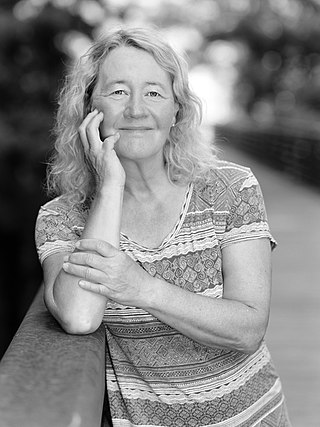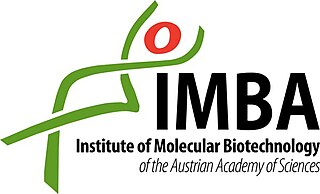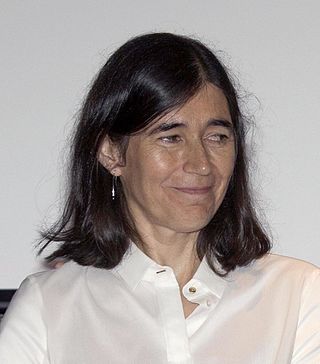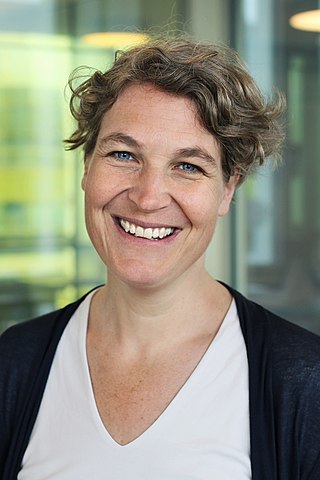
Sir Gregory Paul Winter is a Nobel Prize-winning English molecular biologist best known for his work on the therapeutic use of monoclonal antibodies. His research career has been based almost entirely at the MRC Laboratory of Molecular Biology and the MRC Centre for Protein Engineering, in Cambridge, England.

Carolyn Widney Greider is an American molecular biologist and Nobel laureate. She joined the University of California, Santa Cruz as a Distinguished Professor in the department of molecular, cell, and developmental biology in October 2020.

Karen B. Avraham is an Israeli-American human geneticist and the first female Dean of the Tel Aviv University's Faculty of Medicine. Born in Canada in 1962, Avraham moved to the US at a young age. Her research focuses on the discovery and characterization of genes responsible for hereditary hearing loss.

Sir David Charles Baulcombe is a British plant scientist and geneticist. As of October 2024 he was Head of Group, Gene Expression, in the Department of Plant Sciences at the University of Cambridge, and the Edward Penley Abraham Royal Society Research Professor and Regius Professor of Botany Emeritus at Cambridge. He held the Regius botany chair in that department from 2007 to 2020.

The Institute of Molecular Biotechnology (IMBA) is an independent biomedical research organisation founded by the Austrian Academy of Sciences in cooperation with the pharmaceutical company Boehringer Ingelheim. The institute employs around 250 people from over 40 countries, who perform basic research. IMBA is located at the Vienna BioCenter (VBC) and shares facilities and scientific training programs with the Gregor Mendel Institute of Molecular Plant Biology (GMI) of the Austrian Academy of Sciences and the Research Institute of Molecular Pathology (IMP), the basic research center of Boehringer Ingelheim.

Angelika Amon was an Austrian American molecular and cell biologist, and the Kathleen and Curtis Marble Professor in Cancer Research at the Massachusetts Institute of Technology (MIT) in Cambridge, Massachusetts, United States. Amon's research centered on how chromosomes are regulated, duplicated, and partitioned in the cell cycle. Amon was elected to the American Academy of Arts and Sciences in 2017.

Elizabeth Jane Robertson is a British developmental biologist based at the Sir William Dunn School of Pathology, University of Oxford. She is Professor of Developmental Biology at Oxford and a Wellcome Trust Principal Research Fellow. She is best known for her pioneering work in developmental genetics, showing that genetic mutations could be introduced into the mouse germ line by using genetically altered embryonic stem cells. This discovery opened up a major field of experimentation for biologists and clinicians.

María Antonia Blasco Marhuenda, known as María Blasco, is a Spanish molecular biologist. She is the current director of the Spanish National Cancer Research Centre.
Epigenetics of human development is the study of how epigenetics effects human development.

Emmanuelle Marie Charpentier is a French professor and researcher in microbiology, genetics, and biochemistry. As of 2015, she has been a director at the Max Planck Institute for Infection Biology in Berlin. In 2018, she founded an independent research institute, the Max Planck Unit for the Science of Pathogens. In 2020, Charpentier and American biochemist Jennifer Doudna of the University of California, Berkeley, were awarded the Nobel Prize in Chemistry "for the development of a method for genome editing". This was the first science Nobel Prize ever won by two women only.
Robert Anthony Martienssen is a British plant biologist, Howard Hughes Medical Institute–Gordon and Betty Moore Foundation investigator, and professor at Cold Spring Harbor Laboratory, US.

Max Luciano Birnstiel was a Swiss molecular biologist who held a number of positions in scientific leadership in Europe, including the chair of the Institute of Molecular Biology at the University of Zurich from 1972–86, and that of founding director of the Research Institute of Molecular Pathology (IMP) in Vienna from 1986 to 1996. His research focused on gene regulation in eukaryotes. His research group is sometimes cited as the first to purify single genes, the ribosomal RNA genes from Xenopus laevis, three years before the successful isolation of the lac operon. He is also recognized for one of the earliest discoveries of a gene enhancer element. Birnstiel died in 2014 of heart failure during cancer treatment.
Ruth Lehmann is a developmental and cell biologist. She is the Director of the Whitehead Institute for Biomedical Research. She previously was affiliated with the New York University School of Medicine, where she was the Director of the Skirball Institute of Biomolecular Medicine, the Laura and Isaac Perlmutter Professor of Cell Biology, and the Chair of the Department of Cell Biology. Her research focuses on germ cells and embryogenesis.

Anne Carla Ferguson-Smith is a mammalian developmental geneticist. She is the Arthur Balfour Professor of Genetics and Pro-Vice Chancellor for Research and International Partnerships at the University of Cambridge. Formerly head of the Department of Genetics at the University of Cambridge, she is a Fellow of Darwin College, Cambridge and serves as President of the Genetics Society.

Thomas Jenuwein is a German scientist working in the fields of epigenetics, chromatin biology, gene regulation and genome function.
Elly Margaret Tanaka is a biochemist and Scientific Director at the Institute of Molecular Biotechnology of the Austrian Academy of Sciences (IMBA) in Vienna, Austria. Tanaka studies the molecular cell biology of limb and spinal cord regeneration as well as the evolution of regeneration.

Erwin Friedrich Wagner is an Austrian biochemist known for his research on the molecular basis of cancer and associated conditions such as inflammation and cachexia. He was deputy director of the Spanish National Cancer Research Center (CNIO) in Madrid, Spain, until 2019. Since 2019, Wagner is a group leader affiliated with the Medical University of Vienna.
Elisa Izaurralde was an Uruguayan biochemist and molecular biologist. She served as Director and Scientific Member of the Department of Biochemistry at the Max Planck Institute for Developmental Biology in Tübingen from 2005 until her death in 2018. In 2008, she was awarded the Gottfried Wilhelm Leibniz Prize, shared with Elena Conti, for "fundamental new insights into intracellular RNA transport and RNA metabolism". Together with Conti, she helped characterize proteins important for exporting mRNA out of the nucleus and later in her career she helped elucidate mechanisms of mRNA silencing, translational repression, and mRNA decay.
Marisa Bartolomei is an American cell biologist, the Perelman Professor of Cell and Developmental Biology and Co-Director of the Epigenetics Institute at the Perelman School of Medicine at the University of Pennsylvania. Her research considers epigenetic processes including genomic imprinting. She was elected to the National Academy of Sciences in 2021.

Andrea Pauli is a developmental biologist and biochemist studying how the egg transitions into an embryo, and more specifically the molecular mechanisms underlying vertebrate fertilisations, egg dormancy, and subsequent egg activation. Her lab uses zebrafish as the main model organism. Andrea Pauli is a group leader at the Research Institute of Molecular Pathology (IMP) at the Vienna Biocenter in Austria.














